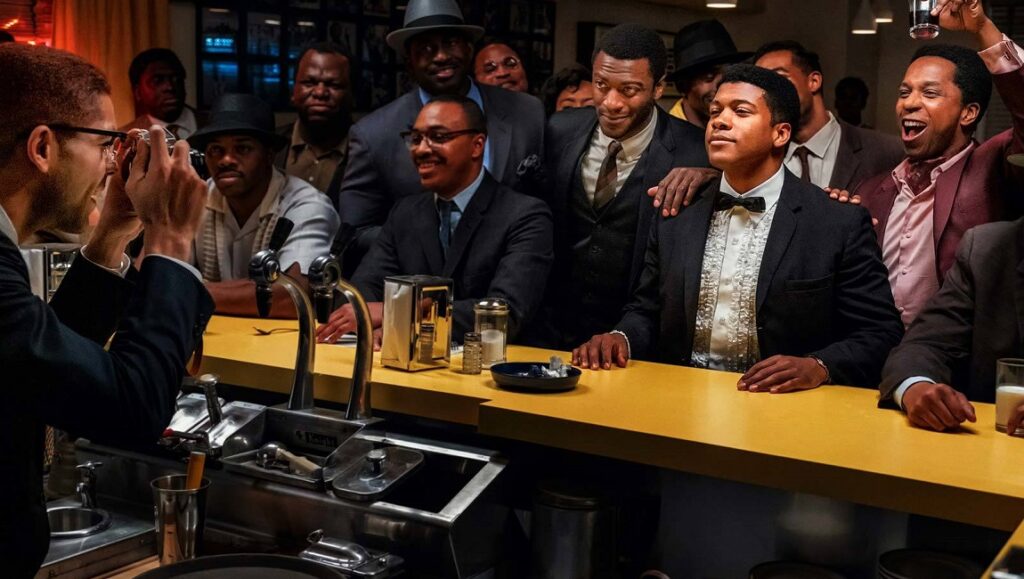One Night in Miami finds power in its discourse and suggests King’s legitimate directorial chops in moments, but it fails to fully translate its stage origins to the screen.
The strength of Regina King’s directorial debut lies largely outside of her influence. Rather, One Night in Miami generates what power it does from its complex and painful portrait of the imperfect and impossible options afforded to Black Americans during Civil Rights-era America. For better and worse, this adaptation of Kemp Powers’ play retains the repartee-heavy style of its source material, featuring the differing (and, in some cases, antipodal) ideologies of Malcolm X, Muhammad Ali, Sam Cooke, and Jim Brown. The fictional narrative is inspired by a real event — on February 25, 1964, the four real-life friends congregate following the then-Cassius Clay’s upset championship victory over Sonny Liston — and proceeds to imagine an evening not of carousing, but of painful philosophizing on the plight of African Americans and specifically the moral obligation of Black men in positions of power and cultural influence. This angle is particularly relevant in 2020: not only are black athletes and celebrities speaking out against systemic injustice with an urgency unseen since, well, Muhammad Ali, but the film also follows on the footsteps of Netflix’s The Last Dance, in which Michael Jordan’s relationship to black activism features heavily (King’s film similarly shares a deep spiritual kinship with O.J.: Made in America).
In retaining the debate-driven fundament of Powers’ source material, King relies heavily on viewer expectations of resolution. In this way, One Night in Miami draws on the modern American drama tradition of Edward Albee and Tennessee Williams: we know there will be no agreeable adjudication, but watching the course to that conclusion play out, with linguistic acuity, is both intellectually stimulating and necessarily agonizing, particularly as a refutation of a neoliberal American society taught to applaud minor progress in the face of persistent and aggressive inequity. Here, that is accomplished by siloing various competing ideological responses to systemic racism — militant resistance, economic freedom, assimilative excellence — to the four principals, allowing them to explicate to each other, first with confidence and even aggression, and then with increasing desperation, making palpable the inconceivability of finding a way forward in a society so set against them.
What prevents One Night in Miami from fully excelling, then, is that it does little to distinguish itself as a film in its own right. There are suggestions of a confident directorial voice: in an early scene, after introducing the larger-than-life personas and dropping a title card twenty minutes in, King slows things down for a powerful pre-fight prayer shared between Malcolm X and Ali, the deep bass recitations of the men suggesting a weight of conviction that lies outside the scope of religion. And later, following Ali’s upset, the camera keeps cutting back to a dynamic overhead shot that captures the boxer’s team trailing him across the square ring in celebration, their collective movement like the train of his robe whipping past. But once the film settles into the rhythms of the play’s conversational gymnastics, all cinematic distinction prostrates itself to the project’s theatrical origins. The result is often powerful and certainly necessary, but there’s an incongruousness that prevents One Night in Miami from fully realizing the righteous, complex anger it should so rightly possess.
You can also stream Regina’s King’s One Night in Miami… on Amazon beginning on January 15.
Originally published as part of TIFF 2020 — Dispatch 1.


Comments are closed.